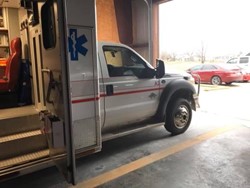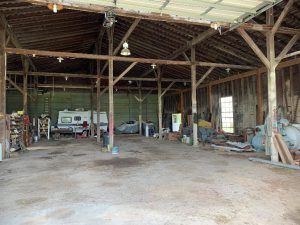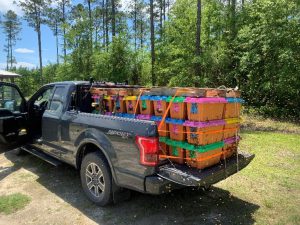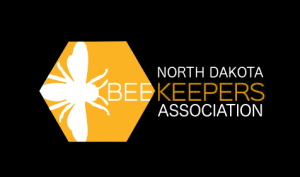Part 4 – A Shout Out to my Friends
By: James Masucci
When I made my decision to focus on bees, I had several concerns. How big do I want my business to be? Where am I going to put all the bees? What equipment do I need? Where am I going to store it? My career was as a scientist, not a businessperson. Over the past six months, however, things have started to fall into place. What I realize is that it is not just me who is responsible for my success, I owe a lot to people who have helped me along the way. Beekeepers think of beekeeping as a solitary experience. Just us and our little flying friends sharing some time together. But the reality for me is that my success is dependent on a lot of people and the relationships I’ve developed with them.

My future bee truck, thanks to my son-in-law and Osage Ambulance.
First and foremost are the landowners. I now have more than a dozen yards and I don’t own the property of any of them. Commercial beekeepers know this well and a good beeyard is more precious than gold. All they ask for is some honey, that I respect their land, and that I keep them updated. The ripple effect of my land-owner relationships has gone far beyond a place to put my hives. They’ve led to new yards, markets, and storage locations.

A perfect place for my stuff! Thanks to one of my landowners.
I have one yard at a small, all-natural vegetable farm. This is my only yard I got by knocking on someone’s door. The family was just starting the farm and I was just starting with my bees, so we both hit it off. They have become successful, selling at farmer’s markets and restaurants. Not only have we developed a friendship, but we work together. He sells my honey both at the farmer markets and to restaurants. A mutual benefit for both of us. He recently gave my number to a woman whose father-in-law was having trouble keeping bees. She called and we talked for a while about the various issues with keeping bees. During the conversation, she asked if I’d be interested in putting bees on her property. I went to visit, we toured the place and found a great site. We chatted for about an hour. As I was leaving, she told me she owns another four acres surrounded by fields . . . if I was interested. Of course, I was interested! Two new beeyards because I was willing to help someone out.

Forty-eight in the back and one in the front went from Southern GA to St. Louis. Thanks to Barry Hart who put them together for me.
In my last article, I talked about needing a bee truck and a place to put it. My son-in-law recently came through for the bee truck. He is a firefighter/paramedic who also sells ambulances. He found me a used ambulance chassis (see picture) that I’m in the process of outfitting with a flatbed and lift-gate (I have a smile on my face just writing about it). However, I can’t park an F450 flatbed in my suburban neighborhood! I went looking for property (still am) and I found an old gas station in a great location for my bee operation. I talked to one of my land-owner friends to find out the owner. The guy didn’t want to sell. However, my land-owner friend said, “you know, you can have a corner of my barn if you would like.” I went to see it a couple of days ago (see picture). It’s perfect. When I told him that he chuckled and said, “well, the price just went up” (it didn’t). Now I have a home base to store equipment, supplies, AND my truck. It buys me time to find the property I really want to buy.
The landowners aren’t the only people I depend on. My personal beekeeping community, consisting of both commercial beekeepers around the country and local hobbyists, are constantly supporting my activities. After having the worst winter survival of my career by far, I called a friend of mine in GA who sold me a truck load of bees (the joke here is that for him, a truck load is a semi-load. I just filled up my pick-up (see picture)). These bees allowed me to expand into new areas without disrupting my sales of local nucs. Locally, we beekeepers provide each other with resources we need to get through emergencies. We help each other finding markets and point our customers to each other when we can’t fill a need. Probably more importantly, we share information and troubleshoot each other’s problems. It’s become obvious to me that though I may work my bees alone, the list of people who help me in this endeavor is large, and I’ll be forever grateful for their support in helping me succeed.
Click here to go directly to Part 3 – Where Do I Put It?
Click here to go directly to Part 5 – A Place for My Honey House






